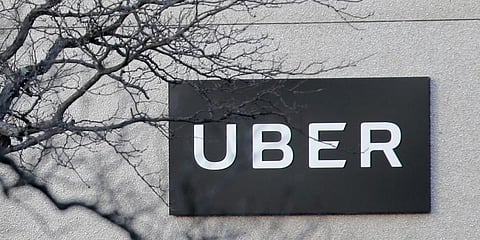

NEW DELHI: Reeling out a fresh set of guidelines to regulate cab aggregators in the country, the government on Friday said that companies such as Uber and Ola can charge up to 20 per cent commission on ride fares while the remaining should be given to the driver partners.
Capping the “surge price” asked by these aggregators in times of high demand to 1.5 times the base fare, the government also restricted the discount offered by them to 50 per cent of the base fare to limit fare volatility.
“The driver of a vehicle integrated with the aggregator shall receive at least 80 per cent of the fare applicable on each ride and the remaining charges for each ride shall be received by the aggregator,” the transport ministry said.
It added that the state governments may by way of a notification direct two per cent over and above the fare towards the state exchequer for amenities and programmes related to aggregator operated vehicles, which have been helpful in reducing traffic congestion to a great extent and subsequently reducing pollution.
Typically, cab operators follow a dynamic pricing model wherein price of a ride automatically rises when demand outstrips supply within a fixed geographic area. In states where the taxi fare has not been determined by the local government, Rs 25/30 shall be the base fare for regulation. Similar fixation shall be done by the state government for other vehicles integrated with aggregators. Like cabs, some companies also offer bike rides. The base fare varies from state to state.
These norms have been laid out in the 26-page Motor Vehicle Aggregator Guidelines issued by the government on November 27. When contacted, both Ola and Uber declined to comment.Drivers, however, hailed the move, adding that commission should not have been more than 10 per cent. “At present, they are charging 25-30 per cent commission on every ride merely for being a broker.
This is too much. Moreover, the incentive we used to earn earlier has come down drastically over the years,” Shaik Salauddin, National General Secretary of Federation Of App-Based Transport Workers (IFAT) told this publication.